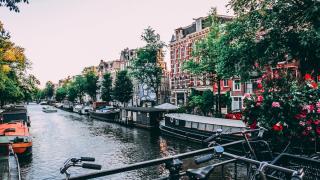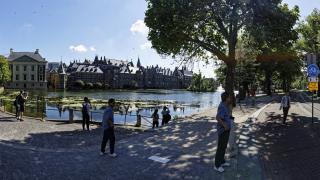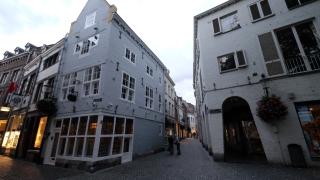Understanding Long-Term Stays
In the Netherlands, a long-term stay usually means staying over 90 days. Typical visitors include international students, expats, digital nomads, and family members. Common reasons are work contracts, university programs, or family reunification. Many choose cities like Amsterdam, Rotterdam, or Utrecht for jobs or study. Smaller towns, such as Groningen or Maastricht, attract students and remote workers seeking lower costs.
- Non-EU/EEA citizens need a residence permit (verblijfsvergunning) for stays over 90 days.
- Registration at the local gemeente (municipality) is mandatory for all stays over four months.
- Dutch rental contracts (huurcontract) often require a deposit of one to two months’ rent.
- Monthly rent in Amsterdam averages €1,200–€1,800 for a one-bedroom apartment. In smaller cities, it can be €700–€1,000.
- Utilities and municipal taxes are usually extra, about €150–€250 per month.
- Public transport passes, like the OV-chipkaart, are essential for commuting.
- Regional differences exist: big cities offer more English services, while smaller towns may require Dutch language skills.
Accommodation Choices Explained
Rental apartments are the most common choice for long-term stays in the Netherlands. In Amsterdam, average monthly rent for a one-bedroom apartment is €1,400–€1,800. In Rotterdam, Utrecht, and The Hague, expect €1,000–€1,400. Smaller towns can be €700–€1,000. Most rentals require a deposit of one to two months’ rent. Contracts are usually for 12 months, with notice periods of one to three months. Shared housing (kamers or huisgenoten) is popular among students and young professionals. Monthly costs range from €500–€900 in cities. Utilities may be included. Student housing is managed by organizations like DUWO or SSH. Prices are €350–€700 per month. Waiting lists are common in university cities. Serviced apartments offer furnished units with services. Monthly rates in Amsterdam start at €2,000. These are flexible but expensive. Houseboats (woonboten) are unique to Dutch cities, especially Amsterdam. Monthly rent is €1,200–€2,000. Availability is limited. Finding accommodation: Use websites like Funda, Pararius, Kamernet, and Expatica. Agencies (makelaars) charge fees, usually one month’s rent. Local Facebook groups and university housing offices are useful. Short-term rentals (less than 6 months) are rare and often more expensive. Long-term contracts offer more security and lower prices. Always check legal terms and registration (gemeente) requirements.
Budgeting for Daily Life
Monthly budgets in the Netherlands vary by lifestyle:
- Student in Groningen: €900–€1,200. Shared room, basic groceries, limited eating out.
- Working professional in Utrecht: €1,800–€2,400. Private apartment, moderate dining, fitness, transport.
- Family of four in The Hague: €3,200–€4,200. Three-bedroom rental, school fees, childcare, activities.
Groceries:
- Basic groceries (Albert Heijn, Jumbo): €200–€350/month per person.
- Local markets (markt): fresh produce often cheaper than supermarkets.
- Eating out: Simple meal €15–€20. Three-course restaurant dinner €35–€50.
Utilities:
- Electricity, water, heating: €150–€250/month (average apartment).
- Internet (Ziggo, KPN): €35–€50/month. Billed monthly, often combined with TV.
Health insurance:
- Mandatory for stays over four months. Basic package (basisverzekering): €120–€150/month per adult.
- Not included in rent. Must be arranged separately.
Unexpected expenses:
- Municipal taxes (gemeentelijke belastingen): €30–€60/month per household.
- Waste disposal fees (afvalstoffenheffing): often billed annually, €150–€350/year.
- Bike repairs, public transport OV-chipkaart top-ups, and incidental costs add up.
Budgeting carefully is essential for long-term stays in the Netherlands.
Long-term residents in the Netherlands use the OV-chipkaart for public transport. This card works on trains, trams, buses, and metro systems. Monthly passes for city travel cost €90–€120 in Amsterdam or Rotterdam. Intercity train passes start at €107 per month for unlimited off-peak travel. Dutch cities have extensive cycling infrastructure. Buying a used bike costs €100–€250. Monthly bike rentals (e.g., Swapfiets) start at €19. Bike parking is free at most stations, but guarded parking can cost €1–€2 per day. Always lock bikes due to frequent theft. Car ownership is less common in cities. Parking permits are required and waiting lists are typical. Monthly parking in Amsterdam can exceed €300. Fuel and road taxes add significant costs. For regional travel, NS trains connect all major cities. Buses fill gaps in rural areas. Public transport is more frequent in Randstad (Amsterdam, Rotterdam, Utrecht, The Hague) than in the north or east. Plan for higher transport costs in large cities. Cycling is often fastest for short trips.
Everyday Essentials & Local Life
Register with the gemeente (municipality) within 5 days of arrival. You will receive a BSN (Burgerservicenummer) needed for work, healthcare, and banking. Bring your rental contract and passport. Open a Dutch bank account at banks like ING, ABN AMRO, or Rabobank. Most require a BSN, proof of address, and passport. Prepaid Dutch SIM cards cost €10–€20. Monthly plans start at €15. KPN, Vodafone, and T-Mobile are main providers. Supermarkets include Albert Heijn, Jumbo, and Lidl. Open daily, usually until 8–10pm. Weekly markets sell fresh produce and local goods. Second-hand shops (kringloopwinkels) are common for furniture and bikes. Learn Dutch for daily life. Free courses are offered by some gemeenten. Integration resources: Het Begint met Taal, Dutchize, and language cafés. Make connections through expat groups (e.g., Internations), local sports clubs, or volunteering (NLvoorelkaar). Most Dutch cities have international communities and meetups.
Smart Strategies for Success
Checklist for arrival:
- Register at your gemeente within 5 days for BSN and residence permit.
- Open a Dutch bank account (ING, ABN AMRO, Rabobank).
- Arrange Dutch health insurance within 4 months (mandatory).
- Get a DigiD for online government services.
Common pitfalls:
- Not registering on time can result in fines.
- Ignoring rental scams; always verify landlord and contracts.
- Overlooking local waste separation rules; fines up to €100.
Resources:
- Expatica.nl for expat guides.
- IND.nl for immigration rules.
- IamExpat.nl for housing and events.
- Local expat centers in Amsterdam, Rotterdam, Utrecht.
Budget reminders:
- Supermarkets like Albert Heijn and Lidl offer weekly discounts.
- Second-hand shops (kringloopwinkels) save on furniture.
- Use Marktplaats.nl for used goods.
- Monthly mobile plans start at €15.
- Avoid taxis; public transport is cheaper and reliable.












